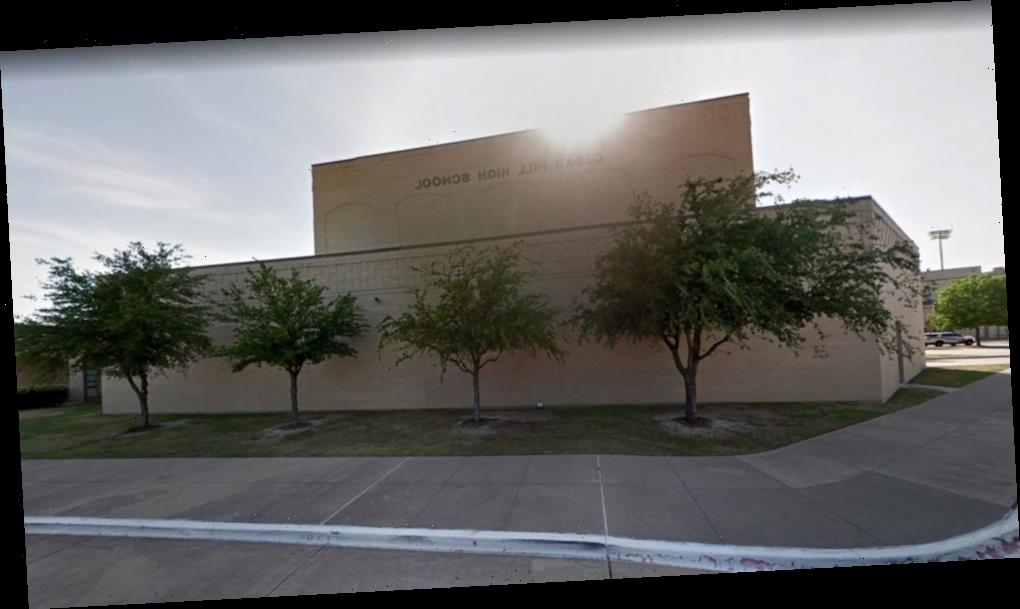The parents of students at a Texas high school were outraged after a teacher subjected their children to a livestream of the Derek Chauvin murder trial as part of a classroom assignment.
The teacher and Cedar Hill Independent School District officials in suburban Dallas got an earful from one parent who said it was “unfathomable” that a teacher required freshman students to serve as mock jurors in the high-profile trial that has included graphic images and video of the police encounter prosecutors contend caused the death of George Floyd.
The classroom assignment at Cedar Hill High School caught many parents off guard because they said it was done without their consent. They said their children were told by their teacher to follow the instructions the judge gave the real Chauvin jury to not to talk about the case to anyone.
“It is unfathomable to me that you felt it appropriate to force my child to watch George Floyd’s murder on television in your classroom, and then move on with his day as if nothing had happened,” one parent wrote in a letter sent to the teacher, which was obtained by ABC Dallas affiliate station WFAA.
The teacher, whose name was not disclosed, responded to the letter and complaints from other parents with an after-the-fact outline of the project for the communications class, stating the students would be “acting as actual jurors in the trial,” WFAA reported.
“Therefore, every day, your child will be attentive to the actual trial, listening and paying attention to the evidence of both sides, defense and prosecution, during the trial,” the teacher wrote in a response to complaining parents that was shared with WFAA.
The teacher, according to the outline, planned to have the students watch the livestream of the trial for about 45 minutes a day.
The trial — in which the former Minneapolis police officer has pleaded not guilty to charges of second-degree unintentional murder, third-degree murder and manslaughter — began last week. Prosecutors showed the jury numerous bystander, surveillance and police body-camera videos of Chauvin kneeling on the back of Floyd’s neck and two other officers holding down the handcuffed 46-year-old Black man as he repeatedly said “I can’t breathe” and cried out “momma.”
A group of parents sent the teacher a letter objecting to the project, saying the video of Floyd’s arrest was seen by millions around the globe and left many adults who watched it traumatized, WFAA reported.
“Yet, you left students to handle their own emotions and mental health as they left your class, without proper professional support,” according to the letter obtained by the station.
School district officials issued a statement to parents on Friday saying the project has been called off.
“The assignment was not approved by campus or district administrators. The matter has been addressed with the teacher, and the assignment was removed,” school district officials wrote in a letter to the parents, according to WFAA.
In a separate response to parents, Cedar High School Principal Jason Miller wrote, “I don’t feel that viewing and discussing this case in school is age-appropriate for scholars.”
As the Derek Chauvin trial is nationally televised and livestreamed this week, Americans have once again been exposed to the May 2020 video of the former police officer driving his knee into George Floyd’s neck for more than nine minutes.
Chauvin has pleaded not guilty in the case and his defense attorneys have argued a combination of factors killed Floyd, including the ingestion of drugs and heart disease.
One medical expert told ABC News that the images from the Chauvin trial may rekindle feelings of racial trauma and warned that watching the trial could have profound emotional and psychological consequences for Black Americans.
Dr. BraVada Garrett-Akinsanya, Ph.D., L.P., a clinical psychologist and executive director of the African American Child Wellness Institute, said rewatching the dramatic death of Floyd on television and social media can have devastating mental health impacts, a phenomenon called vicarious, or secondary, trauma.
“Symptoms of vicarious or secondary trauma include, but may not be limited to, difficulty managing emotions, feeling emotionally numb or shut down, experiencing fatigue, sleep disturbances, flashbacks or intrusive memories, physical problems or complaints, such as aches, pains and decreased resistance to illness,” Garrett-Akinsanya said.
Source: Read Full Article





